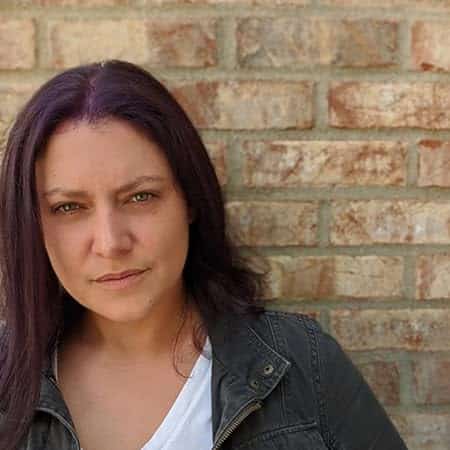“I’m a teenager. Am I too young to write a book?”
I get this question a lot. The answer is no, you’re not too young to write.

The fact is most writers wish they had started younger. If you can string sentences together, you can write.
If you’re asking if you’re too young to write, you’re probably already a writer.
I technically started writing when I was five or six. I’d make illustrated books out of construction paper and my mom would fold and staple them together. I kept writing on and off throughout my teenage and early adult years while I was on a track to do something else with my life.
Writing was more of a pastime for me at that point. Not something I took seriously. And definitely not something my parents took seriously. Writing isn’t what a lot of people would call a “real job.” I didn’t put a lot of effort into my writing until I was twenty-five.
I’d been writing for twenty years at that point. I was already a writer and had been most of my life, I’d just never realized it before. Looking back, I wish I had been more serious about it at a younger age.
6 Tips for Young Writers
If you know you want to be a writer now, here are some tips and realities to help you get going:
Tip #1: You need to read. Even the boring stuff.
This is a tip for all writers, but even more so for those younger aspiring novelists. You have to read. Read widely. Read every book you can get your hands on. Those books are your writing classes. Study them. Pay attention to sentence structure, flow, dialogue, everything. The more you read, the more natural writing will come to you because you’ll already know the basic idea of how to write a story.
Some books are boring, like probably everything your English teacher is assigning you. Read them anyway. Those books are classics for a reason. And you never know, you might just end up liking one of them.
Tip #2: Write all the time.
I don’t think I’ve ever been as busy as I was when I was in school. With homework and friends and extracurriculars, there’s not a lot of time for hobbies.
Writing takes practice. The younger you start, the more practice you’ll have and the younger you’ll be when you get good.
I wrote in the margins of notebooks. I wrote on weekends. I wrote on the bus. Any time I could, I wrote something, even if it was only a couple lines.
Which brings me to a side point: always carry something to write with. A notetaking app on your phone will work. Just make sure it backs up somewhere.
Tip #3: Keep everything.
Right now, you’re most likely writing random lines and anecdotes. You might start something and never finish it. That’s okay! You’re learning.
Don’t throw that away. You’re gathering life experiences and tidbits that you can possibly use later.
Tip #4: Write like your favorite author.
This does not mean plagiarize them. You like their writing for a reason. Study your favorite author’s books even more than others and figure out why you like them so much.
Is it their style? Is in the genre? Try to reproduce what you like so much about them in your own work.
R.L. Stine was the writer I emulated. I wrote about half a dozen Fear Street-type books when I was between nine and twelve. I finished not a one, but I got the feel for writing by stealing his style. Not his words, mind you. Don’t plagiarize. Ever.
Tip #5: Learn to take criticism like a champ.
If you choose to show your work to your friends or teachers, you’re probably going to get some criticism.
Criticism is a big part of this industry and it’s something you need to get used to. Learn how to make it work for you. Don’t ever let it depress you. (Okay, sometimes it depresses me, but I have a pout for a bit and then get back at it.) Use it to improve your writing.
If someone says they don’t like your work, ask them what specifically they didn’t like. Don’t be defensive about it; be open and sincere. You want their help so that you can improve. At this point in your writing career, improvement is the main goal.
Tip #6: Do it anyway.
Like I said earlier, writing isn’t what a lot of people would call a real job. And for the most part, it doesn’t pay the bills. There’s a chance you might not be able to take expensive writing classes or buy a ton of books on writing.
Write anyway.
There are books at the library and tons of tips online about writing (like right here on The Write Practice). There might be a club or writing competitions offered through your school. You don’t need to fork out a ton of money to learn how to write. Reading is the best teacher out there.
You probably won't get published right now. Odds are you’re going to write at least two books before you get published. And that’s the best-case scenario.
You’re going to get rejected. It’s a fact of the profession. Rejection happens to us all. I’ve had half a dozen rejections from anthologies already this year.
When you’re first starting out, you’ll get rejected constantly. Don’t let that deter you. It’s not personal. It doesn’t mean you shouldn’t write.
Keep practicing. You’ll improve and you’ll get those acceptances.
Writing is not a glamorous career. It’s hard. It’s emotionally draining. It’s a lot of work for often very little reward.
So if you want to write to be famous, get that out of your head right now. Odds are you won’t be. I hope you will, but the chances are slim.
The overwhelming majority of writers have a full-time job doing something other than writing. They have to fit in writing time between working and family time and running errands.
That doesn't mean you shouldn't write. Do it anyway.
You CAN be a writer right now.
You’re never too young to start practicing writing. It may be an uphill battle, but everything is. All careers take work: schooling, sacrifice, internships, practice.
All of the realities I listed above aren’t meant to discourage you. They’re meant to put things in perspective. You have to ignore those things and keep moving forward.
Here's my most important tip for young writers: Keep writing. Stick to it, and the fruits of your labor will pay off in the end.
At what age did you start writing? Let me know in the comments!
PRACTICE
Today, take fifteen minutes to write a scene where the main character is a teenager. If it's been a while since you were that age, take a few moments to really think back before you start writing. Think about the emotions, the wants and needs, and the disappointments. This should be a very heartfelt prompt, so dig deep.
Share your writing in the comments and don't forget to comment on your fellow writers' work!
Sarah Gribble is the author of dozens of short stories that explore uncomfortable situations, basic fears, and the general awe and fascination of the unknown. She just released Surviving Death, her first novel, and is currently working on her next book.
Follow her on Instagram or join her email list for free scares.




0 Comments